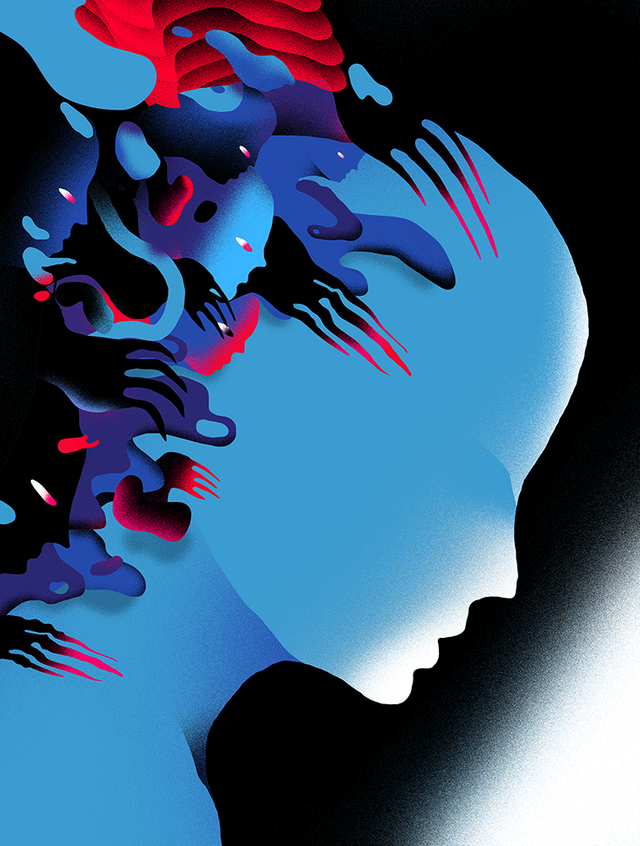Evolutionary Psychology: Depression
Evolutionary psychology rotates around the principle that the behaviors we manifest today are a result of survival mechanisms that our species developed throughout evolution. Based on this theory, abnormal behavior is seen as the malfunctioning of mechanisms that once increased the fitness of our species.
There are behaviors that are universally shared by all humans, despite cultural and ethnic differences. Facial expressions and fight-or-flight responses are just two of the many genetically inherited behaviors that our species developed through time and that survive today because they increased the chances of survival for the species itself. But can abnormal psychology be explained in the same terms? Can a pathological process that brings disadvantage to the individual be seen as an ancient adaptive response to the environment?
Evolutionary Roots of Depression
According to David Buss, psychiatric illnesses develop when one of the evolutionary mechanisms our species developed through time is activated in an environment for which it was not projected. This can happen in three different ways:
- The mechanism is activated in inappropriate contexts.
- The mechanism is not activated when necessary.
- The mechanism cannot coordinate adequately with others.
At first glance, depression does not seem to be in any way useful to our species, but according to evolutionary psychologists such as Baron-Cohen, our ancestors with a predisposition to depression must have survived at a better rate than those that were not predisposed.
Theory of Involuntary Submission
An evolutionary linearity between human and animal behavior may help to explain depression. According to McGuire and Raleigh, vervet monkeys possess a cerebral mechanism that connects their mood to social status. In their studies, the researchers found that dominant male monkeys had double the levels of serotonin in their brain compared to all the other males in the group, and that the loss of social status would immediately halve those levels and provoke behaviors of withdrawal and loss of appetite.
In applying this theory to the human species, Price and Sloman have advanced the possibility that depression could be seen as a behavioral strategy used by losing members of a group in a hierarchical struggle. In these terms, depression is seen as a strategy used by an individual to signal submission to the leader and to protect himself from physical harm.
Price and Sloman believe that this strategy, in humans, is displayed in three ways:
- Inhibition of aggressive behavior: diminishes the probability of attack by the dominant member
- Submission: informs the rival that there is no threat, and signals supporters that the individual has no intention to react
- Acceptance: submission encourages the individual to accept the loss of the competition. This process brings reconciliation and the end of the conflict.
Does Evolutionary Psychology Explain Depression?
Evolutionary theories of depression may need further research. However explained, depression remains a pathological illness that is difficult to frame as an adaptive strategy that allowed our ancestors to better survive.
The level of distress depression causes may lead us to the assumption, instead, that a response mechanism that was once efficient in resolving a specific survival problem is malfunctioning today. Keeping these considerations in mind, our knowledge of the disease may be increased if accompanied by more recent biological and psychiatric studies.
Sources:
Buss, D.M. Evolutionary Psychology. The New Science of the Mind. Boston: Allyn & Bacon
McGuire, M.T., & Raleigh, M.J. Behavioral and physiological correlates of ostracism. Ethology and Sociobiology, 7, 187-200.
Price, J.S., & Sloman, L. Depression as yielding behavior: an animal model based on Schjelderup-Ebbe's pecking order. Ethology and Sociobiology, 8, 85-98.
